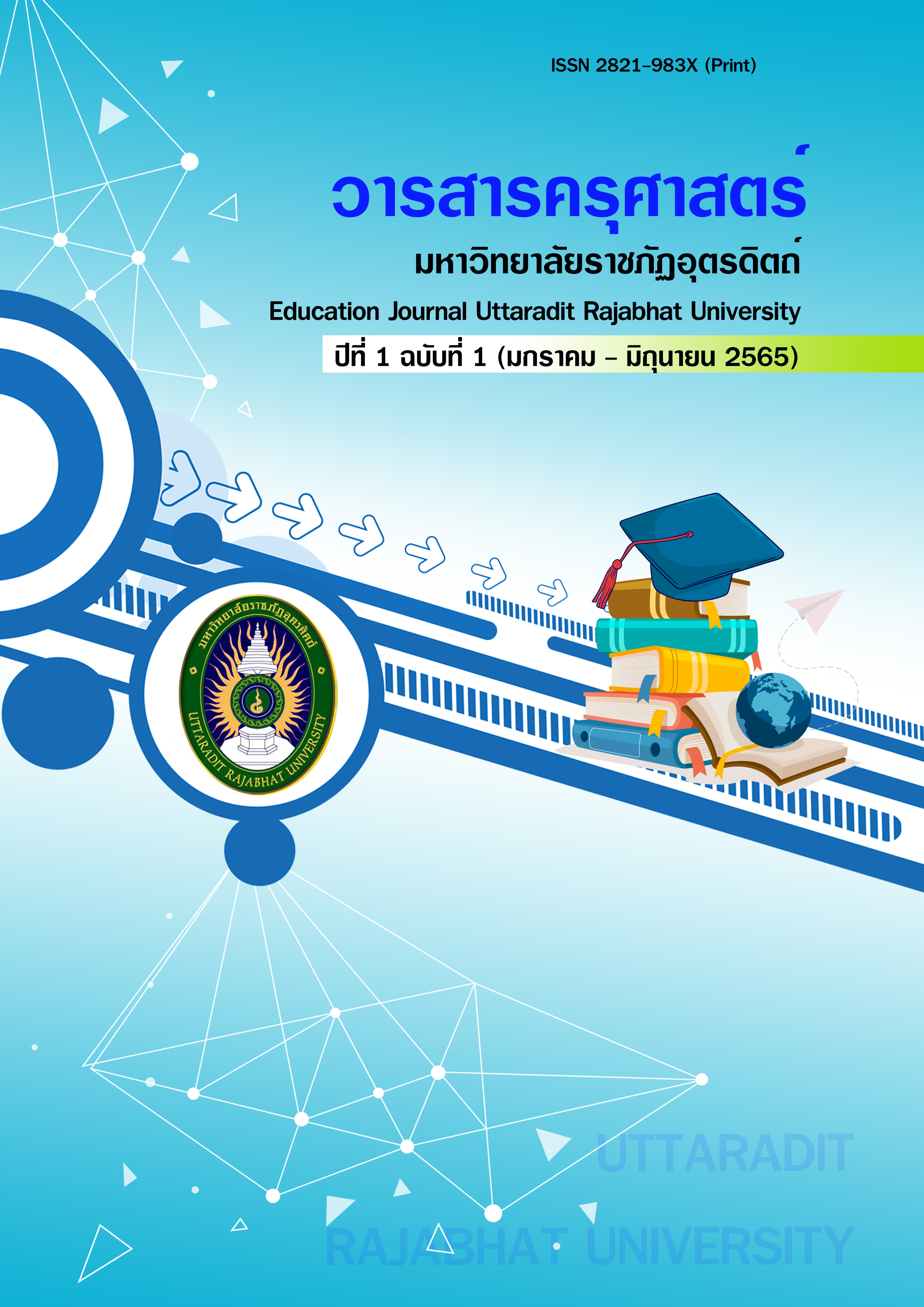Digital Fluency for Lifelong Learning
Main Article Content
Abstract
Developing a country to Digital of Thailand needs to be planned systematically and effectively. Appropriate skills need to be prepared for all staff in digital age. Moreover, all learners should have digital literacy in order to implement technology equipment
as effective as possible for communication and cooperative work experience. Furthermore, using, understanding, designing and accessing technology effectively are concerned. In order to understand and be able to handle it, skills to use technology are necessary for teenagers who face various learning resources. They can use technology devices through various resources to improve their potential development. The main components of the skills are knowledge, attitude and skills to know how each technology devices used differently. Also, level of fluency is concerned, including anti learning, before learning, learning and becoming fluent users. All skills mentioned directly related to Lifelong Learning Approach that can lead to Digital Fluency Lifelong Learning Approach in the future.
Article Details

This work is licensed under a Creative Commons Attribution-NonCommercial-NoDerivatives 4.0 International License.
Faculty of Education Journal Uttaradit Rajabhat University It is a medium for disseminating research results. Academic work Any opinions expressed in the article are solely the personal opinions of the author. Faculty of Education Uttaradit Rajabhat University and the editorial team does not necessarily have opinions that are consistent with those expressed in the article in any way. and is not considered the responsibility of the Faculty of Education Uttaradit Rajabhat University and editorial team
References
กระทรวงเทคโนโลยีสารสนเทศและการสื่อสาร. (2559). แผนพัฒนาดิจิทัลเพื่อเศรษฐกิจและสังคม กรุงเทพฯ: กระทรวงเทคโนโลยีสารสนเทศและการสื่อสาร.
เดอะโนวเลจ. (2562). สังคมแห่งการเรียนรู้ตลอดชีวิตในยุคดิจิทัล. นิตยสารเดอะโนวเลจ, 3(12): 3-6.
วรพจน์ วงศ์กิจรุ่งเรือง และอธิป จิตตฤกษ์. (2554). ทักษะแห่งอนาคตใหม่ : การศึกษาเพื่อศตวรรษที่21. กรุงเทพฯ: โอเพ่นเวิลด์ส.
ศุภกร จูฑะพล. (2557). ทัศนคติ พฤติกรรม และความคล่องดิจิทัลของกลุ่มดิจิทัลเนทีฟ. (ปริญญานิพนธ์ศิลปศาสตรมหาบัณฑิต). กรุงเทพฯ: สถาบันบัณฑิตพัฒนบริหารศาสตร์.
สำนักงาน ก.พ. (2563). Digital Literacy คืออะไร. สืบค้น 30 มิถุนายน 2564, จาก https://www.ocsc.go.th/DLProject/mean-dlp
Bartlett, J., & Miller, C. (2011). Truth, lies and the internet: A report into young people's digital fluency. London: Demos.
Briggs, C., & Makice, K. (2012). Digital fluency: Building success in the digital age. Bloomington: SocialLens.
Green, R. M. (2005). Predictors of digital fluency (Doctoral dissertation). Available May 22, 2020, from ProQuest Dissertations and Thesis database. (UMI 3177723)
Jennifer Sparrow. (2018). Digital Fluency: Big, Bold Problems. Retrieved May 20, 2020, from https://er.educause.edu/-/media/files/articles/2018/3/er182107.pdf
Niessen, S. (2013). What is digital fluency?. Retrieved. November 22, 2014, from http://www.shuananiessen.ca/what-is-digital-fluency
The National Research Council [NRC]. (1999). Being fluent information technology. Washington, DC: National Academy Press.


